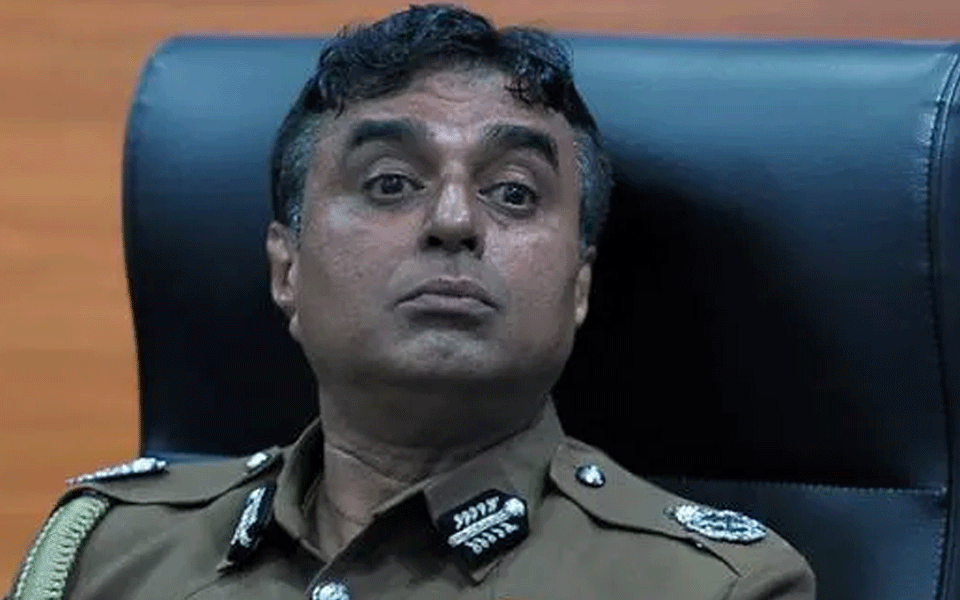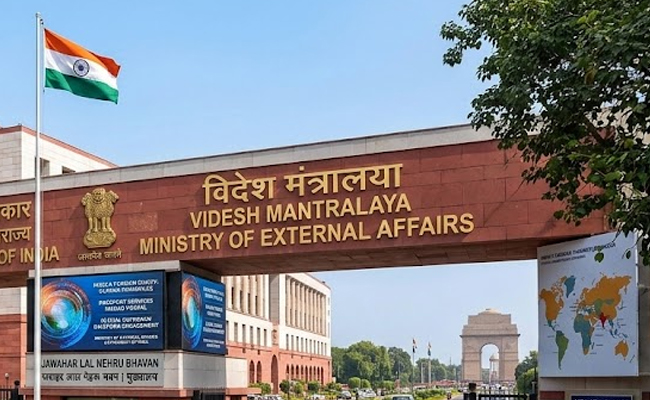Colombo: Sri Lanka's suspended police chief has accused President Maithripala Sirisena of failing to prevent the Easter bombings that killed over 250 people as he filed a petition in the Supreme Court against his "unfair dismissal" over the catastrophic intelligence failure.
Inspector-General Pujith Jayasundara was sent on compulsory leave by Sirisena for his alleged inaction on the intelligence shared by India, which warned of an impending attack by Islamic militants, and thereby, failing to prevent the serial blasts on April 21.
In the petition submitted to the court last week, Jayasundara revealed serious lack of communication between intelligence agencies and security arms of the government, all which fall under Sirisena, and claimed he was sidelined and excluded from attending National Security Council meetings since a political rift between the president and Prime Minister Ranil Wickremesinghe emerged in October last year.
In October 2018, Sirisena sacked Prime Minister Ranil Wickremesinghe. The police was under the control of Wickremesinghe.
In the 20-page complaint, the former police chief said Sirisena had asked Nilantha Jayawardena, the head of the State Intelligence Service (SIS) -- country's premier spy agency, to report directly to the president on matters of national security.
Jayasundara claimed despite having intelligence inputs from India about an impending attack, the SIS chief did not take the warning seriously and take any action on it.
On April 9, Jayasundara said he received a letter from Sisira Mendis, the chief of national intelligence, giving information on the planned attack. He also received a phone call from the Secretary to the then Defence Minister Hemasiri Fernando on the impending attacks. Fernando was also sacked by Sirisena for his alleged failure to prevent the attacks.
The former Inspector-General claimed despite the SIS not sharing security warning information with the police department, he alerted Jayawardena about the impending threat but the SIS head did not ask him to take any action.
More than 250 people were killed in eight coordinated suicide bomb attacks carried out by local Jihadi group National Thowheed Jammath (NTJ) linked to the ISIS on April 21.
Two days after the attacks, Jayasundara said, Sirisena asked him to take the responsibility for the failure to prevent the bombings and step down in exchange for a diplomatic posting.
However, he refused to do so following which Sirisena sacked him "illegally".
Earlier on Thursday, Sirisena said he was not privy to an intelligence warning on the Easter suicide bombings, contradicting the national intelligence chief Mendis' testimony before a parliamentary probe panel.
During a visit to New Delhi last week to attend Prime Minister Narendra Modi's swearing-in ceremony, Sirisena said a clear report about a possible terror attack was sent by Indian intelligence agencies to their Sri Lankan counterparts 17 days prior to the April 21 bombings but he was not informed about it.
"Had I known about a possible attack, I would have taken necessary steps to prevent it," Sirisena said.
Sirisena said he left for a foreign trip on April 16 and till then he was not informed about the Indian intelligence report, though there had been exchanges on the issue between the defence secretary and the then inspector general of police.
"Had I known it, I would not have left the country," he had said.
A parliamentary select committee was appointed to probe the events leading to the April 21 attacks and any lapses by those responsible following reports that India had alerted the Sri Lankan defence establishment on the impending attacks.
Testifying before the committee on Wednesday, Mendis said that at an intelligence coordination meeting on April 9 discussed the information received on the impending attacks, however, it "was never a main point for discussion".
Let the Truth be known. If you read VB and like VB, please be a VB Supporter and Help us deliver the Truth to one and all.
New Delhi (PTI): The Ministry of External Affairs (MEA) has set up a control room to assist those affected by the escalating crisis in West Asia.
The MEA has said almost one crore Indian citizens live in West Asia and their safety and well-being is of "utmost priority" for New Delhi.
As the Iran-US conflict widened, the Indian embassy in Iran moved hundreds of Indian students from the Iranian capital of Tehran to safer locations.
"A Control Room has been set up in the Ministry of External Affairs in view of the current situation in West Asia and the Gulf region," the MEA said on Wednesday.
"The Control Room can be contacted from 9 am to 9 pm at: 1800118797 (Toll Free) +91 11 2301 2113, +91 11 2301 4104, +91 11 2301 7905," it added.
The US launched military strikes on Iran on February 28, killing Iranian Supreme leader Ali Khamenei.
Following the military offensive, Iran has carried out a wave of attacks mainly targeting Israel and American military bases in several Gulf countries, including the UAE, Bahrain, Kuwait, Jordan and Saudi Arabia.
The MEA on Tuesday noted that almost one crore Indian citizens live and work in the Gulf region, and their "safety and well-being is of utmost priority."
"We cannot be impervious to any development that negatively affects them," it said.
The MEA said New Delhi will continue to closely monitor the evolving situation and take relevant decisions in the national interest, adding it is in touch with the governments in the region as well as other key partners.
A Special Control Room has been set up in the Ministry of External Affairs in view of the current situation in West Asia and the Gulf region. Details are as below ⬇️
— Randhir Jaiswal (@MEAIndia) March 4, 2026
🔗 https://t.co/nK3d6SY9Pa pic.twitter.com/v2EhUI5B1x




